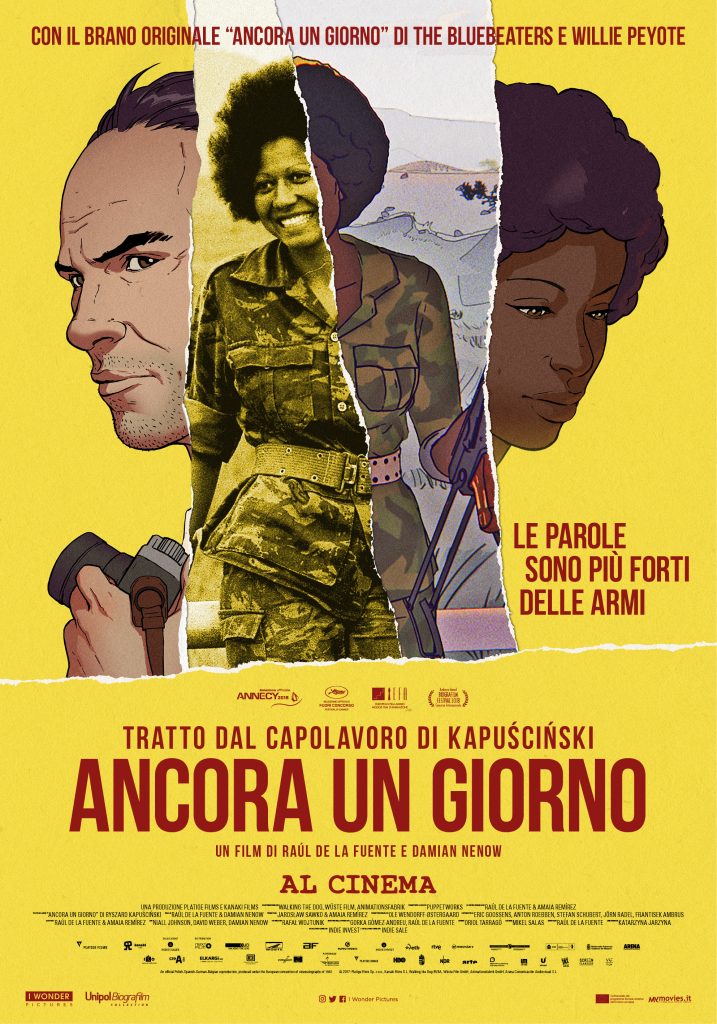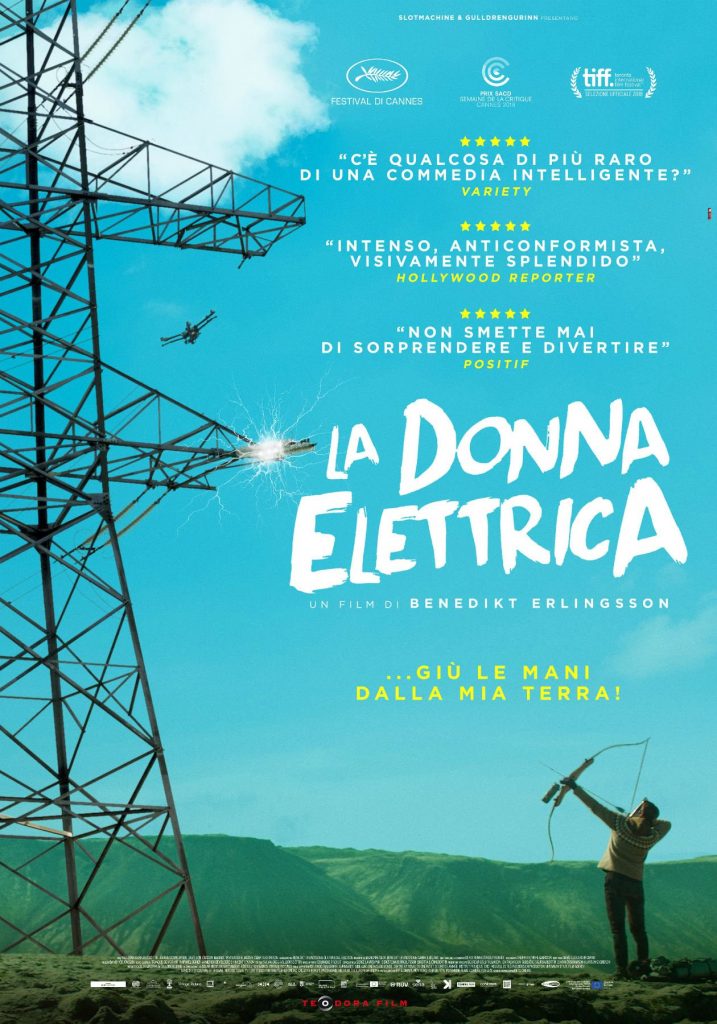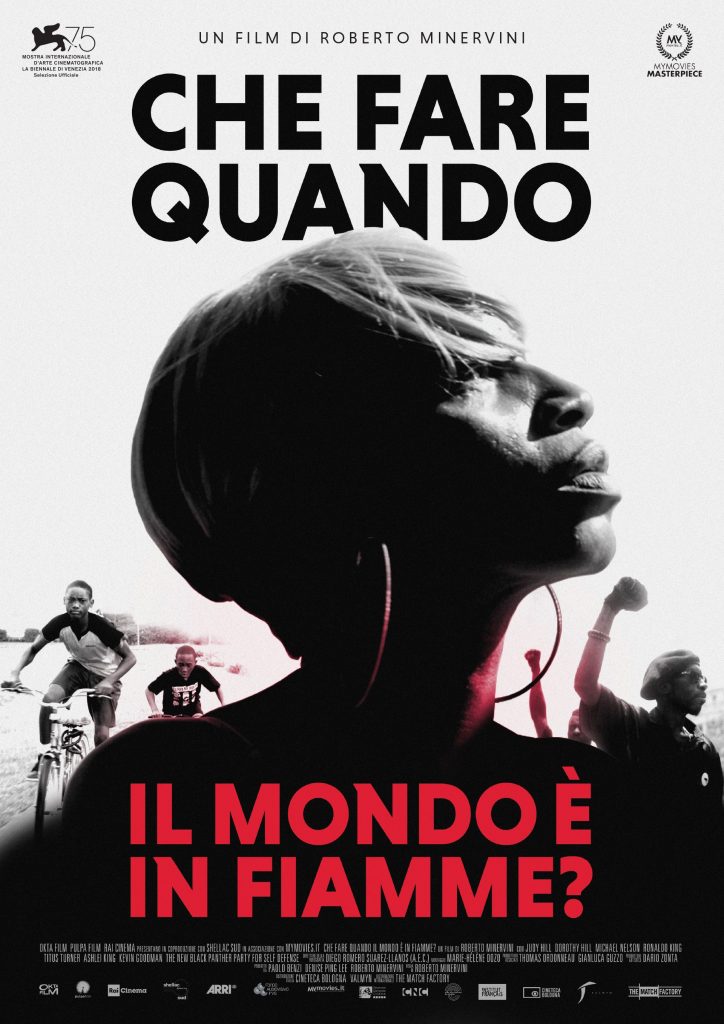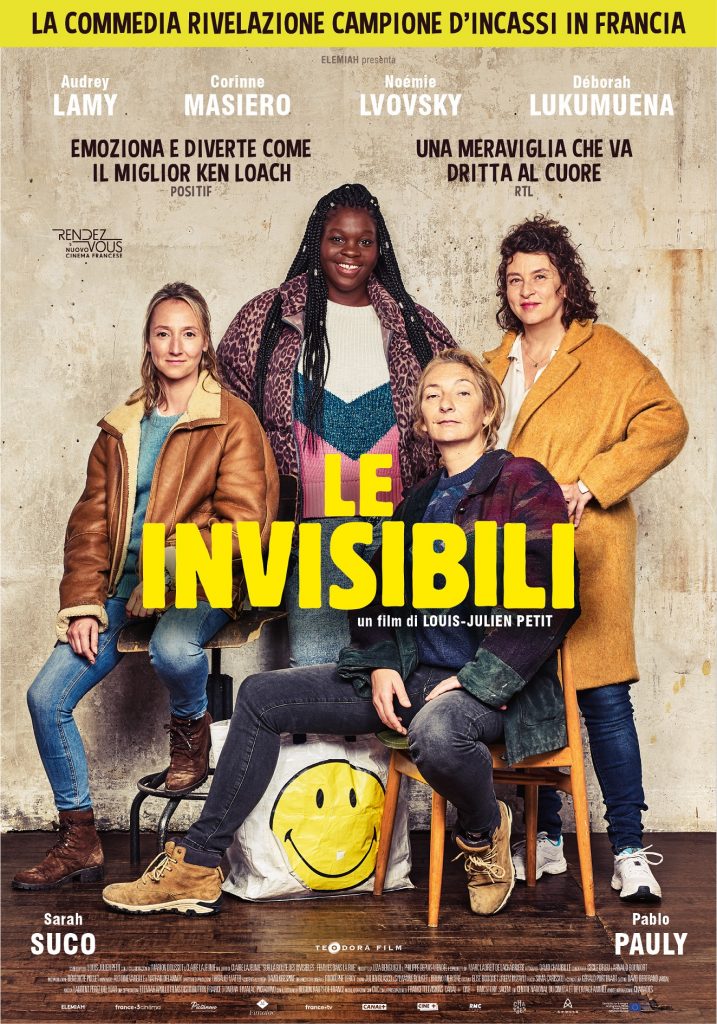Robert Frank, best known for his groundbreaking book, “The Americans,” had a visually raw and personally expressive style that made him one of the most influential photographers of the 20th century. He was also the iconoclastic film director of Pull My Daisy and Cocksucker Blues (starring the Rolling Stones); a difficult (almost impossible) interview subject; a rejecter of wealth and celebrity; a man whose ‘sympathies were with people who struggled,’ who has a ‘mistrust of people who made the rules’. Laura Israel cut her teeth editing award-winning commercials and music videos. Her client list included: John Lurie, Lou Reed, Patti Smith, Keith Richards, Sonic Youth, New Order, Ziggy Marley, David Byrne, artists Laurie Simmons and Robert Frank.

WESTWOOD: Punk, Icon, Activist
Years after the shocking murders that made the name Charles Manson synonymous with pure evil, the three women who killed for him – Leslie Van Houten, Patricia Krenwinkel and Susan Atkins – remain under the spell of the infamous cult leader. Confined to an isolated cellblock, the trio seem destined to live out the rest of their lives under the delusion that their crimes were part of a cosmic plan, until an empathetic graduate student attempts to rehabilitate them.”A delicate and tremulous thing, at once confident and gentle, lyrically composed yet as stoic as the American masculine ideal it so carefully deconstructs.” – The Front Row.

ANCORA UN GIORNO. Another Day of Life | Cannes e Rotterdam Film Festival
Ryszard Kapuscinski was one of the 20th century’s principal and most colourful war reporters. He reported on 27 revolutions during his career, was imprisoned 40 times and sentenced to death four times. He was primarily active in Africa as a correspondent for a Polish news agency. When civil war erupted in Angola in 1975, he was the only foreign reporter on the ground. His book Another Day of Life describes how that diamond and oil-rich country was used as a Cold War pawn.
Kapuscinski’s writing style is subjective, sometimes even surreal. This animated adaptation does complete justice to his form of literary reportage. Hallucinatory impressions of chaotic firefights are recorded in a graphic-novel-like style. Interviews with the main characters were made in real life, 40 years later – some have become successful, others have gone mad. This is a story, but no work of fiction.

THE GREENAWAY ALPHABET
The fascinations of filmmaker Peter Greenaway, whose motto is “art is life and life is art,”are captured like butterflies and arranged in an alphabet, a form that suits him perfectly as an encyclopedist. In intimate conversations with his perceptive 16-year-old daughter Zoë, we discover the whos, whats and whys about Greenaway. They begin with A, which stands for Amsterdam, but could also stand for autism, Zoë suggests. Greenaway’s boundless creativity, unconstrained flow of words and passion for collecting certainly bring this to mind, and he admits to wearing the label with pride. The playful conversations don’t shy away from more painful topics; we hear that Greenaway hasn’t seen two other children of his for years. And later, heartbroken and in tears, Zoë asks him if for once he’ll stop talking like a commentator. Zoë’s spontaneous questions penetrate Greenaway to the core, enabling his wife, multimedia artist Saskia Boddeke, to make a deeply personal portrait not only of the artist, but also of Greenaway the father in his battle against time.

LA DONNA ELETTRICA di Benedikt Erlingsson. Cannes Film Festival 2018
Halla, a woman in her forties, declares war on the local aluminum industry to prevent it from disfiguring her country. She risks all she has to protect the highlands of Iceland-but the situation could change with the unexpected arrival of a small orphan in her life.

Detour estate
Detour si prende le meritate vacanze! La nostra programmazione regolare riprende a settembre.
Nel frattempo prosegue il lavoro di selezione di film e cortometraggi a tema di viaggio che vedremo in concorso in autunno nell’ambito della settima edizione di ON THE ROAD FILM FESTIVAL. Scadenze per le iscrizioni: 31 agosto 2019 (regolare) e 15 settembre 2018 (ultima chiamata).
Un ringraziamento sincero per averci seguito e accompagnato durante questa intensa stagione di cinema indipendente.
Buona estate a tutte e tutti voi!!

VISAGES VILLAGES by Agnès Varda. A masterpiece.
The story of a community of black people in the American South during the summer 2017, when a string of brutal killings of black men sent shockwaves throughout the country. A meditation on the state of race in America, this film is an intimate portrait into the lives of those who struggle for justice, dignity, and survival in a country not on their side. DIRECTOR’S NOTES. I have told stories of the American South which were unfolding before my eyes in unexpected ways. I have documented clusters of today’s America where the seeds of anti-institutional, reactionary anger (which gifted the country with Donald Trump as the new president) were already planted, but no one cared to notice. This time, I intended to dig even deeper into the roots of social inequality in America, by focusing on the condition of African Americans. While preparing the film, we were able to establish deep bonds with several people, and gained access to neighbourhoods and communities that are off-limits to most. I soon realised that most of the people I met felt strongly about two dramatic events in Louisiana’s recent history: Hurricane Katrina (2005) and the killing of Alton Sterling (2016). Both events are the result of institutional negligence, of a socioeconomic divide between rich and poor, and of strong endemic racism. Moved by anger and fear, people wanted to get a chance to tell their stories out loud. I hope that this film can facilitate a much-needed discussion on race and the current plight of African Americans who, now more than ever, are witnessing the intensification of hate crimes and discriminatory policies.

ANCORA UN GIORNO. Another Day of Life | Cannes e Rotterdam Film Festival
Ryszard Kapuscinski was one of the 20th century’s principal and most colourful war reporters. He reported on 27 revolutions during his career, was imprisoned 40 times and sentenced to death four times. He was primarily active in Africa as a correspondent for a Polish news agency. When civil war erupted in Angola in 1975, he was the only foreign reporter on the ground. His book Another Day of Life describes how that diamond and oil-rich country was used as a Cold War pawn.
Kapuscinski’s writing style is subjective, sometimes even surreal. This animated adaptation does complete justice to his form of literary reportage. Hallucinatory impressions of chaotic firefights are recorded in a graphic-novel-like style. Interviews with the main characters were made in real life, 40 years later – some have become successful, others have gone mad. This is a story, but no work of fiction.

LES INVISIBLES. Commedia sociale dell’anno in Francia
Box office hits in France. In three months a homeless shelter for women is set to close as the result of an administration decision. The social workers running the centre will do whatever it takes to reintegrate the women back into society. They have no protocol, everything is permitted… but time is running out.

BORDER. Best Film Cannes Film Festival – Un Certain Regard
In this dark fairytal Swedish actress Eva Melander buries herself in the role of Tina, an ostracized woman who feels out of place in society because of her otherworldly appearance. The peculiar creature she plays in director Ali Abbasi’s foreign-language Oscar submission suggests the unholy offspring of Quasimodo and a Tolkien Orc. But that’s just the starting point for an entrancing and unexpected love story when Tina — who works a lonely job in border security, using her rat-like sense of smell — wakes up to her superpowers when she meets a fawning man (Eero Milonoff) who looks just like her.
